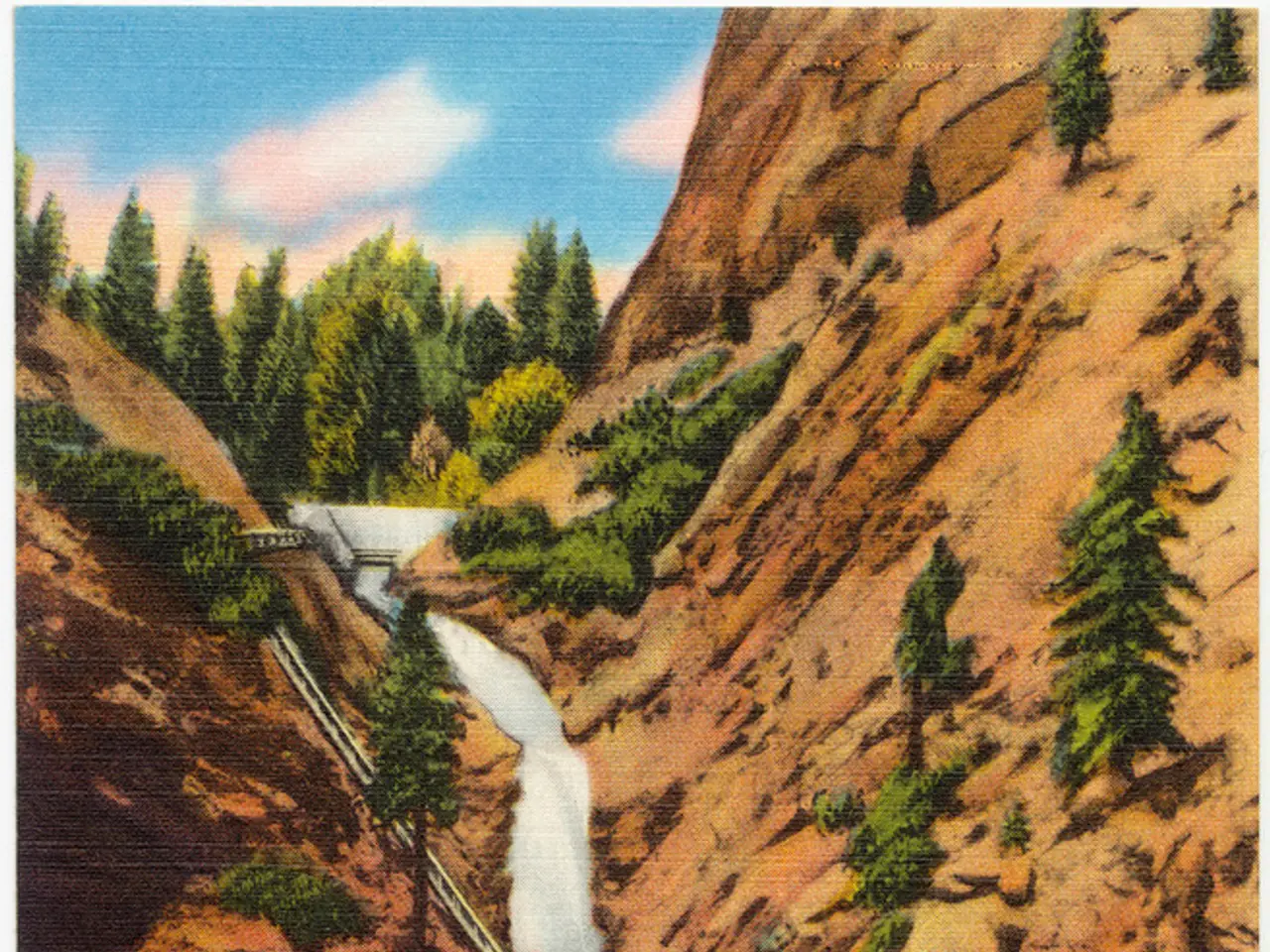TV Drama Writing: A Speedy Guide by The Writer's Store's 1-Hour Bundle
In the ever-evolving world of television, crafting compelling hour-long scripts suitable for today's multi-platform market is a key skill for aspiring writers. A bundle of 10 digital products, featuring webinars by experienced screenwriters, offers an in-depth guide to this art.
The bundle, available until August 31, 2025, is packed with valuable insights from industry experts like Peter Russell and Daniel P. Calvisi. These webinars provide a comprehensive approach to creating complex, compelling hour-long scripts.
One of the key techniques taught is understanding the modern TV landscape. Writing for networks, pay cable, and streaming platforms requires crafting far richer, deeper characters, darker dilemmas, more complex storylines, conflicts, and sometimes time-shifts.
Creating memorable characters that drive the story and resonate with audiences is another essential skill. Mastering story structure through outlining and story mapping is also highlighted, with a focus on a bulletproof pilot script that hits major signpost beats page-by-page.
Writers are advised to learn from examples of top TV series to understand what makes an idea “work” and how to structure acts, scenes, and character arcs effectively. Adopting an iterative writing process, using techniques like detailed story mapping and scene-by-scene breakdowns, is also emphasized to ensure cohesion and dramatic tension throughout the hour-long format.
Practical advice on pacing is also provided. A one-hour drama pilot often runs about 60 pages, so writers are advised to aim for about two pages a day to complete a draft efficiently.
Additional educational courses related to writing TV pilots highlight the importance of structuring your script with proper story acts, developing your characters fully, understanding the television industry roles and collaboration processes in writers’ rooms, and using proper formatting tools like Final Draft.
Some of the standout webinars in the bundle include "One-Hour TV Pilot Structure: From ABC to AMC to HBO to Netflix," led by Daniel Calvisi, which provides a comprehensive guide to structuring a successful one-hour TV pilot. "Writing the Power Protagonists of AMC, HBO, and SHOWTIME" discusses the creation of iconic characters in recent TV history.
Another notable webinar is "The Television Plunge: The Winning Structure of Breaking Bad," which focuses on the structure of the Breaking Bad pilot script, offering a unique insight into the crafting of a successful TV drama.
The bundle also includes "Structuring the Bulletproof One Hour Pilot," taught by Jeffrey Alan Schechter, and "Write Great TV Scenes: Learn the Secrets of the TV 'BEAT'," which explains the concept of TV Beats and their role in scriptwriting, using examples from current TV shows.
In conclusion, this bundle of digital products offers a comprehensive guide to crafting a TV drama pilot ready for professional submission and production. By understanding the modern TV landscape, creating memorable characters, mastering story structure, writing with awareness of specific network styles and expectations, learning from examples of top TV series, adopting an iterative writing process, and focusing on practical advice on pacing, aspiring writers can master the art of one-hour TV drama writing.
- Aspiring writers seeking to craft compelling hour-long scripts for today's television market can benefit from a bundle of digital products until August 31, 2025.
- The bundle features webinars by industry experts like Peter Russell and Daniel P. Calvisi, offering guidance on creating complex, compelling hour-long scripts suitable for networks, pay cable, and streaming platforms.
- Writing for modern TV requires crafting richer, deeper characters, darker dilemmas, more complex storylines, and sometimes time-shifts.
- Creating memorable characters and mastering story structure through outlining and story mapping are essential skills, with a focus on a bulletproof pilot script that hits major signpost beats page-by-page.
- Aspiring writers are advised to learn from examples of top TV series to understand what makes an idea “work” and how to structure acts, scenes, and character arcs effectively.
- Adopting an iterative writing process, using techniques like detailed story mapping and scene-by-scene breakdowns, is also emphasized to ensure cohesion and dramatic tension throughout the hour-long format.
- Practical advice on pacing suggests that a one-hour drama pilot often runs about 60 pages, so writers should aim for about two pages a day to complete a draft efficiently.
- The bundle includes educational courses on structuring your script with proper story acts, developing characters fully, understanding the television industry roles and collaboration processes in writers’ rooms, and using proper formatting tools like Final Draft.







